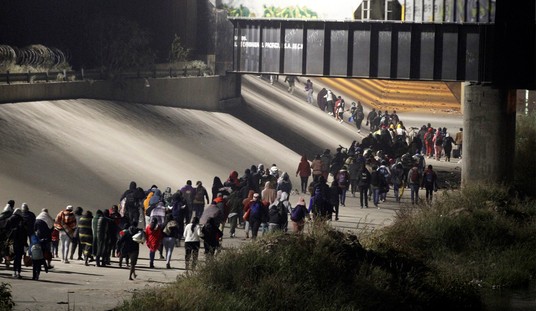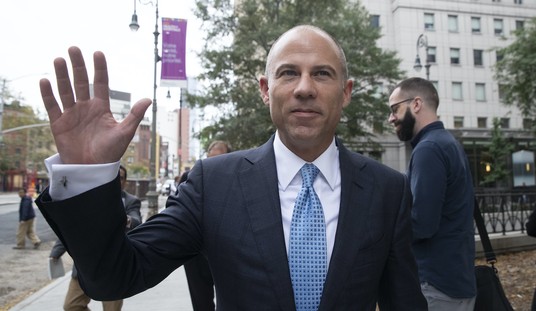Texas Democrats and minority group leaders warned Republicans that there would be a “reckoning” at the polls because of anger over Senate Bill 4, the state’s so-called “sanctuary cities” law, and other “anti-Latino” policies.
But a University of Texas-Austin poll shows support for SB4 statewide, even among Hispanics.
The U.S. 5th Circuit Court of Appeals is scheduled to hear arguments Friday on Texas’ Senate Bill 4, the so-called “sanctuary cities” law.
The sanctuary cities law, which was signed by Gov. Greg Abbott in May, was supposed to take effect Sept. 1. However, U.S. District Court Judge Orlando Garcia blocked SB 4 on Aug. 30 with a temporary injunction.
“There is overwhelming evidence by local officials, including local law enforcement, that SB 4 will erode public trust and make many communities and neighborhoods less safe,” Garcia said in the injunction.
In asking the Court of Appeals to stay the temporary injunction, Texas Attorney General Ken Paxton described Garcia’s ruling that SB 4 violated the Fourth Amendment by even voluntarily honoring ICE detainer requests as being “fundamentally flawed.”
Paxton also argued the District Court ruling would “shut down federal-local cooperation that has existed throughout the nation since the 1940s.”
“Senate Bill 4 is wholly valid, and the state has every right to prohibit its own localities from having sanctuary city policies,” Paxton added.
Texas Democrats are angered by SB 4. But more importantly, they also see it as a critical issue in the coming 2018 election. They don’t have an officially declared candidate yet who could use it against Abbott. But Rep. Mary Gonzalez (D) told the San Antonio Express-News she was confident someone would emerge to enter the 2018 race.
“We are confident that there will be some strategy to make sure we are organizing communities of color and low-income communities to be presently engaged in the Democratic process,” Gonzalez said as she and other SB 4 opponents launched their “Not in My State” campaign Sept. 13.
“Texans are fed up with this brand of leadership,” said Jose Garza, executive director of the Workers Defense Action Fund. “We will continue to organize, we will continue to rally communities across this state, and there will be a reckoning for these kinds of discriminatory policies.”
Dallas Morning News political writer Gromer Jeffers Jr. reported in July that Texas Democrats are still looking for a “dynamic, authentic” gubernatorial candidate.
Former San Antonio Mayor Julian Castro has declined to run against Abbott, as have two other early Democratic Party favorites: Rep. Rafael Anchia and former Rep. Trey Martinez Fischer.
“We are talking to several people, and we will have a candidate,” Manny Garcia, deputy executive director for the Texas Democratic Party, told Jeffers. “We’re looking for a candidate who can connect with Texas voters and energize the base.”
Jeffers wrote that Garcia sees 2018 as “a midterm election of a lifetime, a watershed year for his party and progressives in the Lone Star State” and an opportunity not to be squandered.
However, if SB 4 is to be a foundational plank in the as-yet-unnamed Democratic candidates’ campaign platform, progressives and liberals might be disappointed at the response from Texas’ Hispanic community.
Immigration attorney Kate Lincoln-Goldfinch told the Daily Texan that much of the Hispanic community in Austin doesn’t understand the fine points of Senate Bill 4. She said they just see it as a “big, scary law.”
“Lots of people who are in legal status or on their way to legal status are just terrified of police officers now, which is not good for community safety,” Lincoln-Goldfinch said. “(Law enforcement’s) job is to maintain safety and have a good relationship with the entire community, including the immigrant community.”
Still, there are plenty of Hispanics who not only believe they understand the law, they also believe in the law.
More than one-third of the Hispanics who responded to a University of Texas-Austin Texas Politics Project survey said they either strongly support or somewhat support the two most important provisions of SB 4, the provisions blocked by Judge Garcia’s temporary injunction.
The first provision requires local police to cooperate with ICE immigration enforcement. The other would allow police to ask for someone’s identification papers or question their citizenship.
“They don’t approve of (SB 4),” Jim Henson, director of the UT-Austin Texas Politics Project, told KXAN. “A pretty big majority disapprove, but at the same time there’s a small but not insignificant share of Hispanics who tend to be OK with immigration enforcement.”
Henson said a Texan’s stand on SB 4, Hispanic or not, is guided less by racial motives than it is by where one stands politically.
“You can’t get around the fact that the reason you get those policies is because the Republican Party is so dominant in state government,” said Henson, “and there’s no way for the Democrats to effectively defend one of their major constituencies.”








Join the conversation as a VIP Member